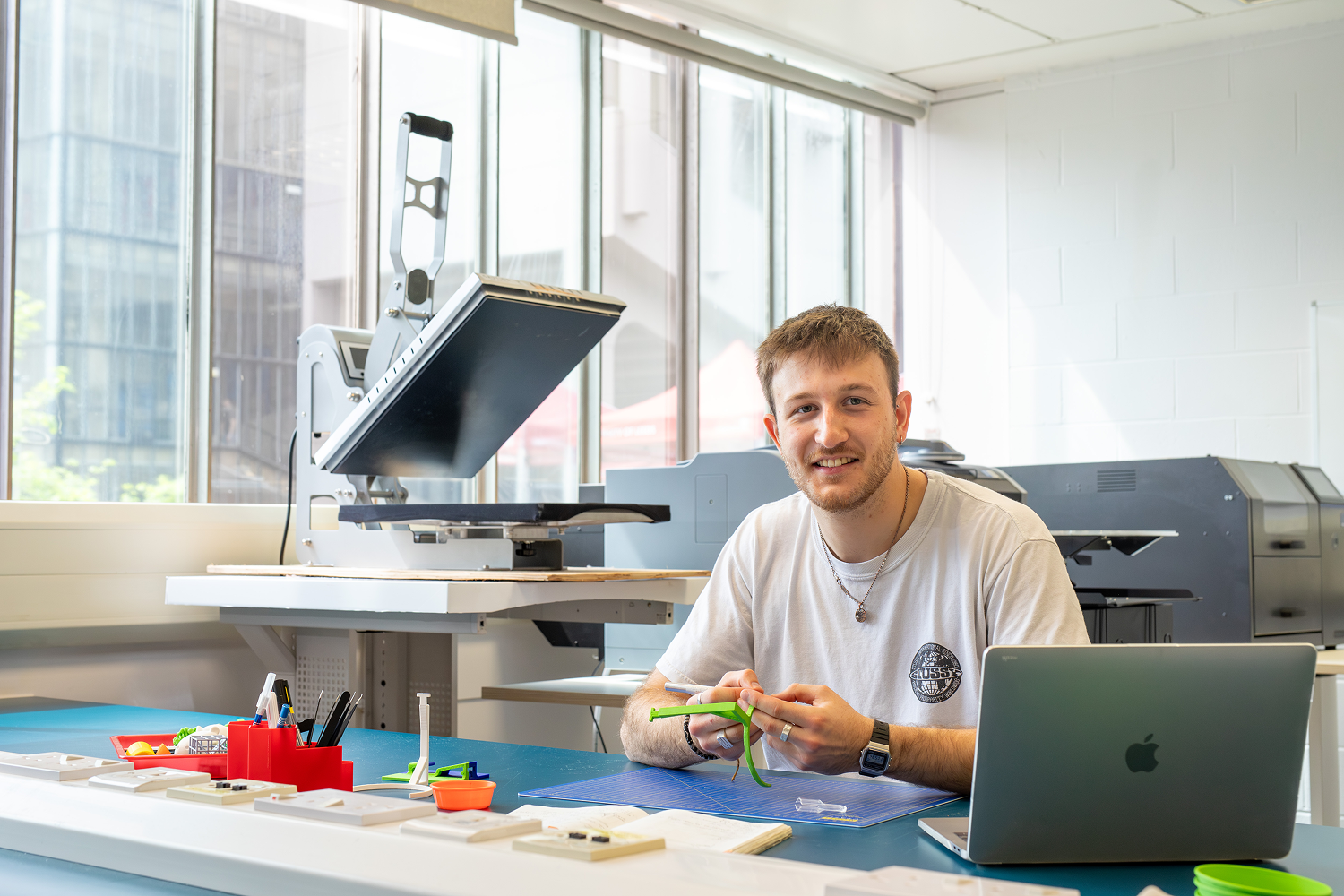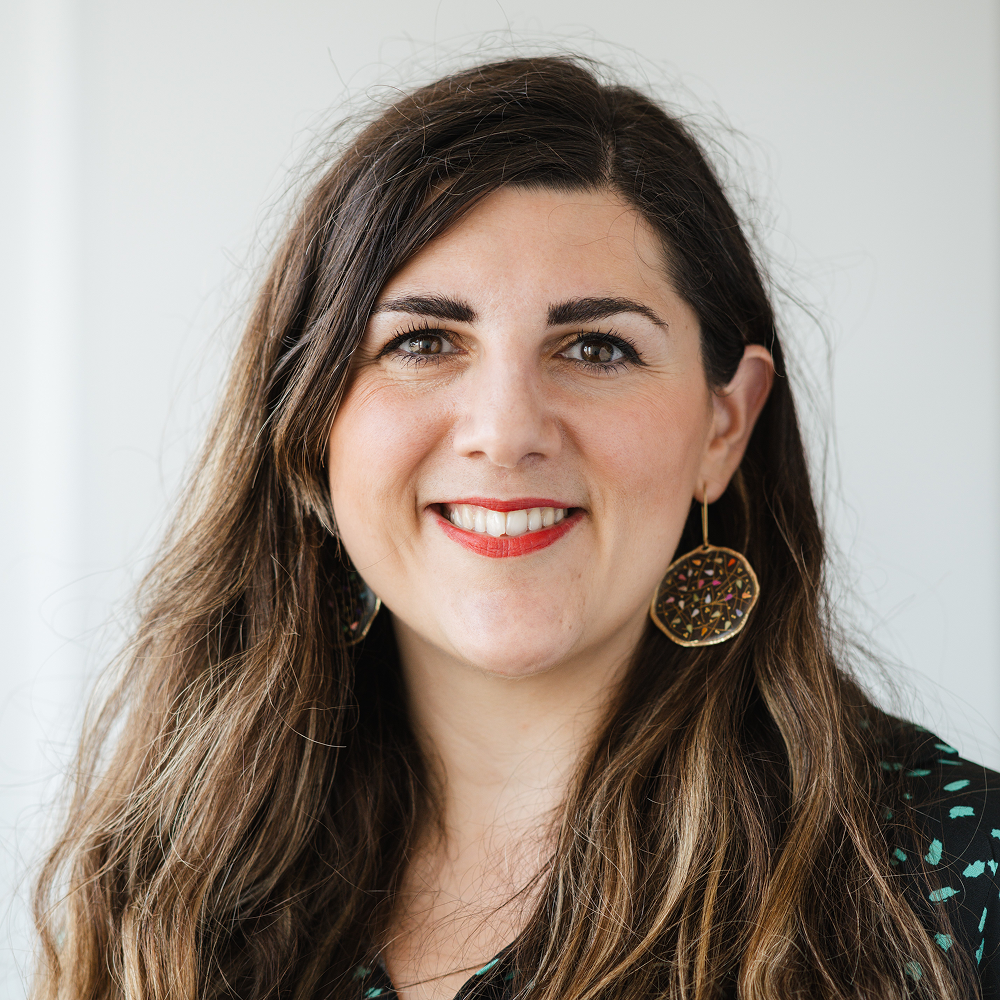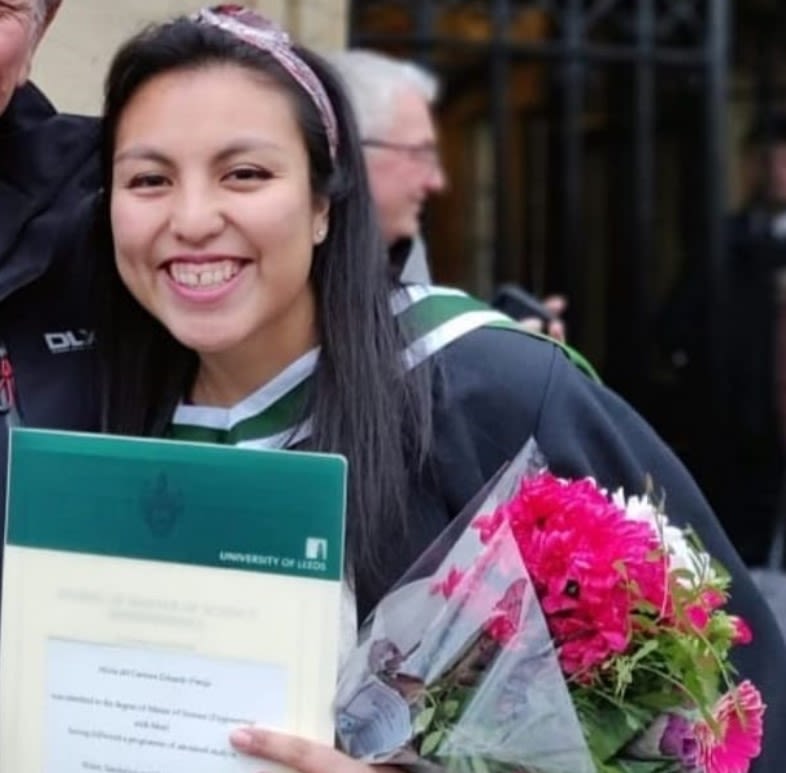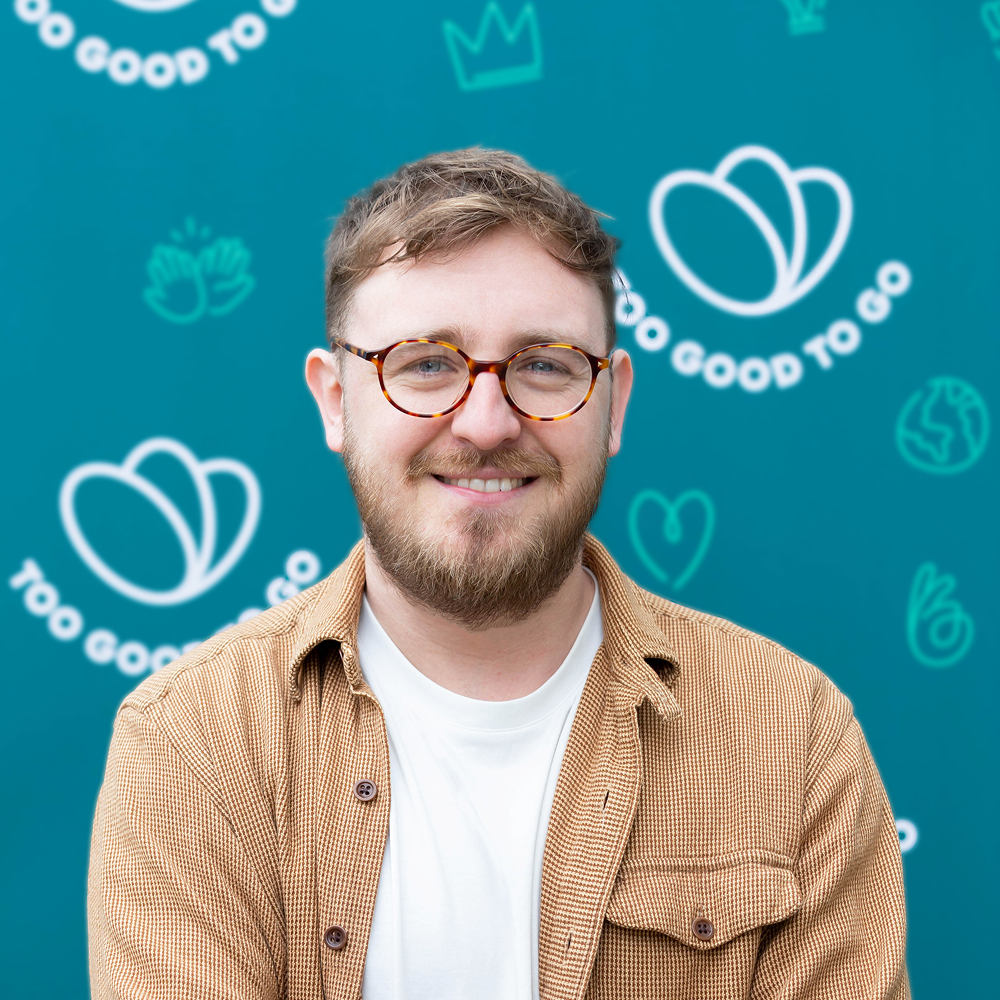WHERE ARE THEY NOW?

Placement planted the seed of an idea
Tom Milner (Electronics and Computer Engineering (Industrial) 2024)
An enterprise scholarship – allied to his twin passions for engineering and horticulture – led Tom Milner to design an innovative product for plant lovers who live in rented accommodation. Many landlords don’t allow tenants to leave holes in their walls, so Tom designed a bracketless plant pot holder which allows plants to be displayed on walls without any drilling.
“My parents have a large garden and I’ve absorbed their passion for plants,” he says. “My flat wouldn’t be the same without them. Drills and landlords are equally scary – and I didn’t want to get berated for messing up a wall.”
During his undergraduate degree, Tom had a placement at a robotics firm and quickly became fascinated with 3D printing. That led him to think about how he could display his plants and effortlessly water them without causing a mess or making holes in the walls.
“The scholarship takes the stress out of starting a business, while the skills
and contacts propel you forwards.”
Tom has stayed in Leeds to study for a Masters in Mechatronics and Robotic Engineering. "This has allowed me continued access to Spark’s facilities and network, so I'd be silly to miss out on this opportunity.”
“Leeds inspired me to develop my ideas. It is only through Spark that they could grow into something,” he added. “Their support and the scholarship have completely changed the course of what I want to do.”
Removing barriers to higher education
Sabrina Luisi (English and French 2010)
From an early age, Sabrina Luisi understood the importance of education. Raised in Loughborough by her Italian grandparents, she was the only literate member of the household.
An outstanding pupil at school, she applied to Oxford University: “But that’s when I began to face barriers,” she says. “They wanted me to fax over some information, but we didn’t have a fax machine. They then asked for an email, but we had no internet. Everything was a no, and it felt like I didn’t fit in before I’d even got there.” Sabrina eventually found a computer in the local library and withdrew her application.
Soon afterwards, she attended an open day at Leeds: “It was a different experience. The ambassadors were really nice and prospective students didn’t feel different to me. It felt right.” Sabrina was awarded a scholarship, which helped to relieve financial pressures, meaning Sabrina could focus on her studies without having to find work.
And after graduating with a first-class degree from Leeds, Sabrina was determined to help others following in her footsteps. She worked at TeachFirst, a charity that trains teachers to work with children facing the biggest barriers to education. She later became Chief Engagement Officer at The Brilliant Club, a social mobility charity which sends PhD researchers into schools to give students experience of university-style learning.
“I want people to make an informed choice about what they might do, without barriers getting in the way. I want to increase opportunities for young people, no matter their background.
“I want to make sure that nobody else has a fax machine moment.”
Improving life for vulnerable families
Alicia Eduardo Pareja (MSc Water Sanitation and Health Engineering 2018-19)
Our Water Sanitation and Health (WASH) scholarships allow international students to join our renowned MSc course which provides an in-depth knowledge of technical interventions in water supply, sanitation and waste management. It has a strong focus on the challenges of the developing world.
The scholarship was critical to Alicia, from Peru, to study in Leeds and follow her dream of improving life for disadvantaged people. “After returning to Lima I joined UNICEF as a water specialist, working with migrant and refugee families, mainly from Venezuela and Colombia.
“The WASH programme equipped me with the skills and technical knowledge to help provide them with access to safe water and safe and dignified showers and toilets. Each month, our assistance point in Tumbes serves up to 1,500 people and I’m proud to have been part of the team that set this up.”
Still with UNICEF, Alicia is now back in Lima, working with schools and communities to reduce the gap in water sanitation services, particularly for children.
“I am so grateful for the support I’ve received. Without the scholarship I would never have been able to do this.”
Protecting pockets and the planet
Jamie Crummie (Law 2014)
At a time of rising food prices and a deepening climate crisis, Jamie Crummie (Law 2014) created a global phenomenon which helps customers rescue unsold food from businesses, saving it from going to waste.
For aspirant barrister Jamie, entrepreneurship was not part of the career plan. That all changed when he witnessed food waste bins being filled at an event, and decided to do some digging into the issue: “I found out that forty per cent of food produced in the world is wasted at a cost of £20 billion per year,” Jamie said. “The more I discovered, the more motivated I became to do something.”
With support from the Spark programme, Jamie and co-founder Christopher Wilson (English and Spanish 2014) set out to redistribute food before it hit the bin. Alongside like-minded entrepreneurs in Copenhagen, they created an app – which initially began as a web shop – on which businesses list surplus food each day. Customers then purchase a “surprise bag”, named accordingly because they don’t know what they will get – for just £5.
It’s a three-way win,” Jamie explained. “The customer gets £15 worth of food, the business recovers the cost of ingredients and food waste is reduced dramatically.”
Launched in 2016, Too Good To Go now has over 100 million users in 17 countries, and has saved over 400 million meals worldwide.


